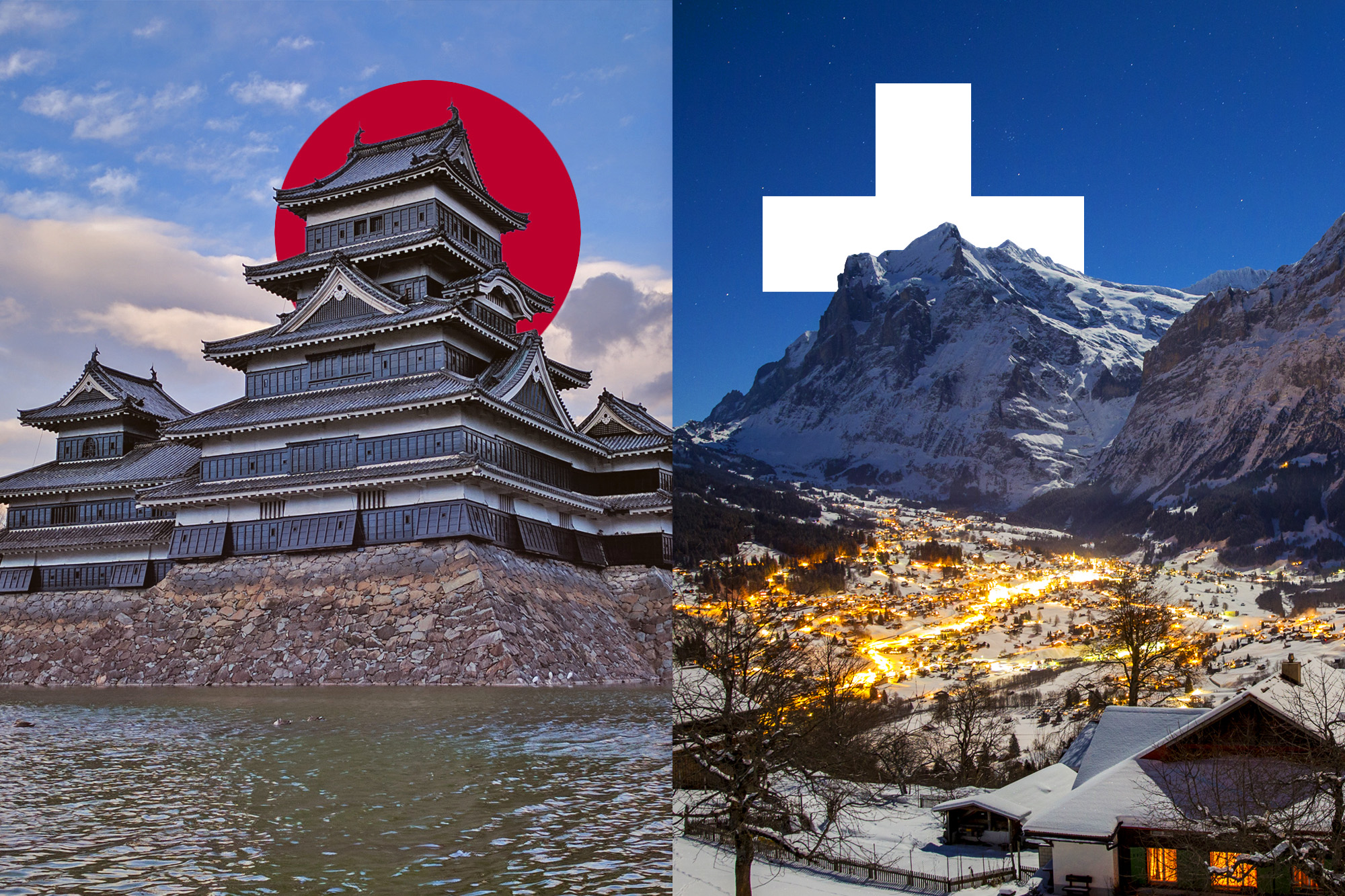-
 L: Otsu by night (©Biwako Otsu Tourism Association) / R: Interlaken and its two lakes
L: Otsu by night (©Biwako Otsu Tourism Association) / R: Interlaken and its two lakes
-
 Harder Kulm – Top of Interlaken
Harder Kulm – Top of Interlaken
-
 Mangetsu-ji Temple, Otsu (©Biwako Otsu Tourism Association)
Mangetsu-ji Temple, Otsu (©Biwako Otsu Tourism Association)
Otsu ― Interlaken (1978)
Kansai | Otsu City
City Partnerships
A Japanese a city with a giant lake and a Swiss town with two smaller lakes not only built a 40 years-long friendship, but also a Japanese garden in the Oberland region.
At the origins of Japanese civilization

Otsu Festival (©Otsu City)
Located in western Shiga prefecture, Otsu is known all over Japan for being nestled up against Lake Biwa, Japan’s largest fresh water lake. From fishermen to watersports, the economy, identity and food culture of the city have strongly been influenced by its natural surroundings. Thanks to its proximity to Kyoto (only a handful kilometers), Otsu also hosts numerous religious sites of high historical importance, among which the Hieizan Enryakuji temple, where many Japanese Buddhist high priests train, learn, and pray for world peace. The site is located on Mount Hiei, the "Mother Mount of Japanese Buddhism", and is part of a UNESCO World Heritage Site.

About 80% of Lake Biwa are visible from the top of the area's ski slopes (©Otsu City)

The former Chikurin-in, which once served as a retirement home for monks at the Hieizan Enryakuji Temple (©Otsu City)
Strangely, however, the tea ceremony between two friends that triggered the official relations between Otsu and a Swiss town in August 1976 was not held in any of the temple we just mentioned, but thousands of kilometers away, in a town of the Bernese Highlands named Interlaken.
A tea between lakes
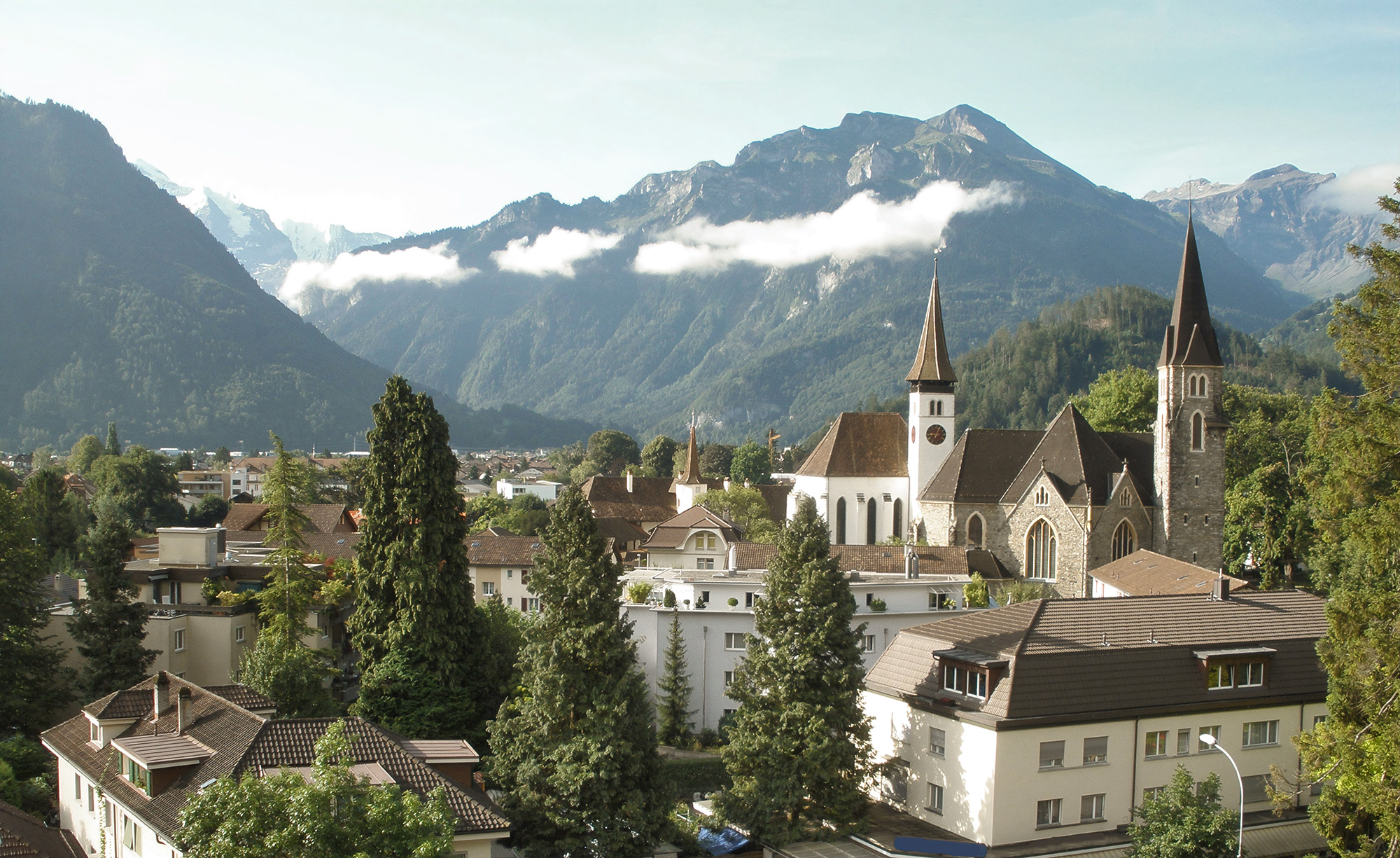
Interlaken, a town "between lakes"
For a tea ceremony, there most certainly was not a more unique area in Switzerland: while it is rather common for a town to be on a river, on a lake or an ocean, Interlaken sits between two lakes - Lake Thun and Lake Brienz. Presided by the Eiger (3,970 m), the Mönch (4,099 m) and the Jungfrau (4,158 m), whose iconic and idyllic alpine environment can be accessed thanks to mountain railway lines and funiculars, Interlaken is a typical, peaceful and human-sized Swiss town in spite of its 200 years-old international reputation as a touristic destination. In Switzerland, too, the region is widely known for hosting exciting annual events, from the memorable landscape of the Jungfrau Marathon to the rock vibes of the Greenfield Music Festival.
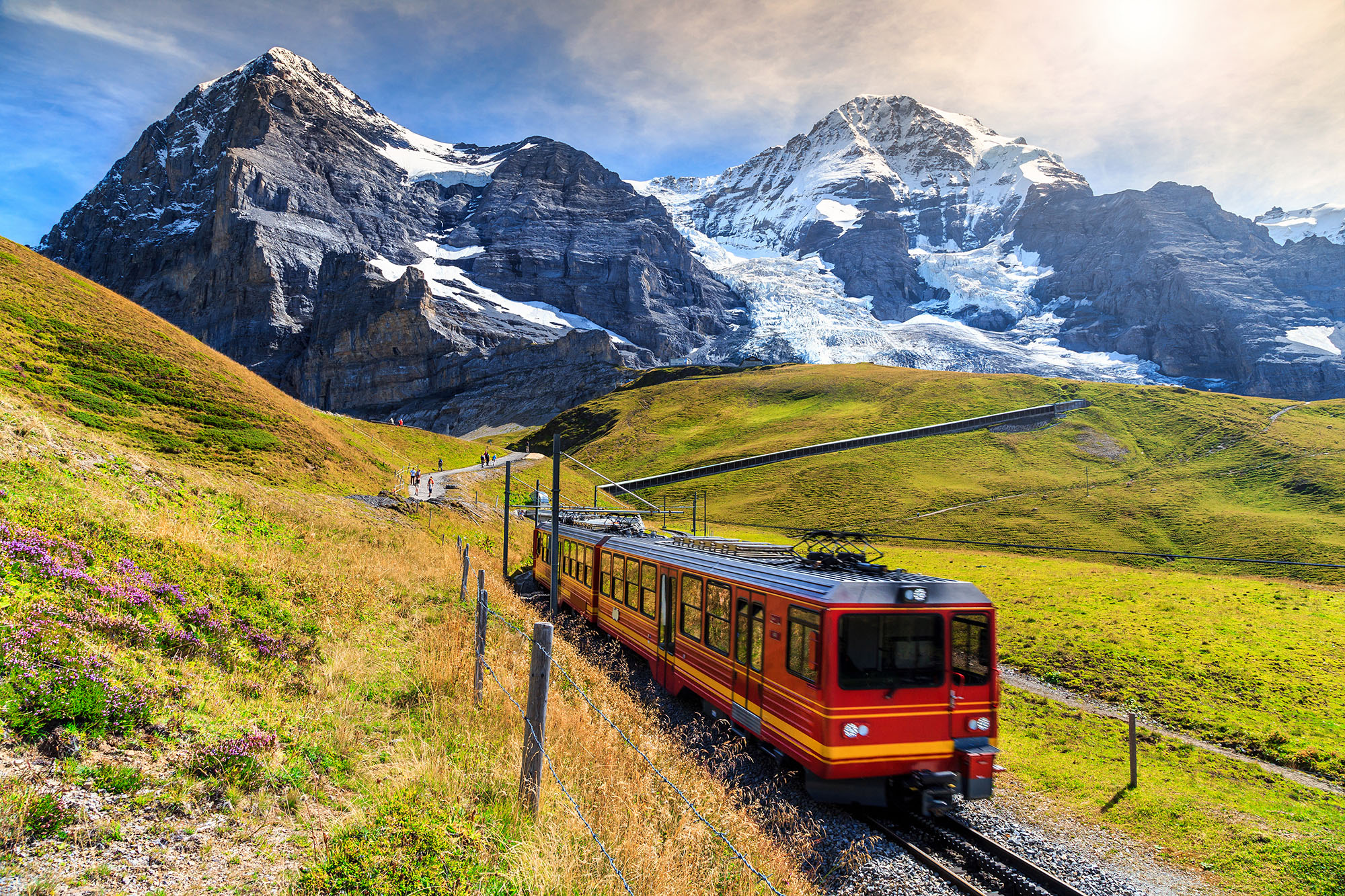
The Jungfraujoch - Top of Europe is only a few a few railway stations away from Interlaken
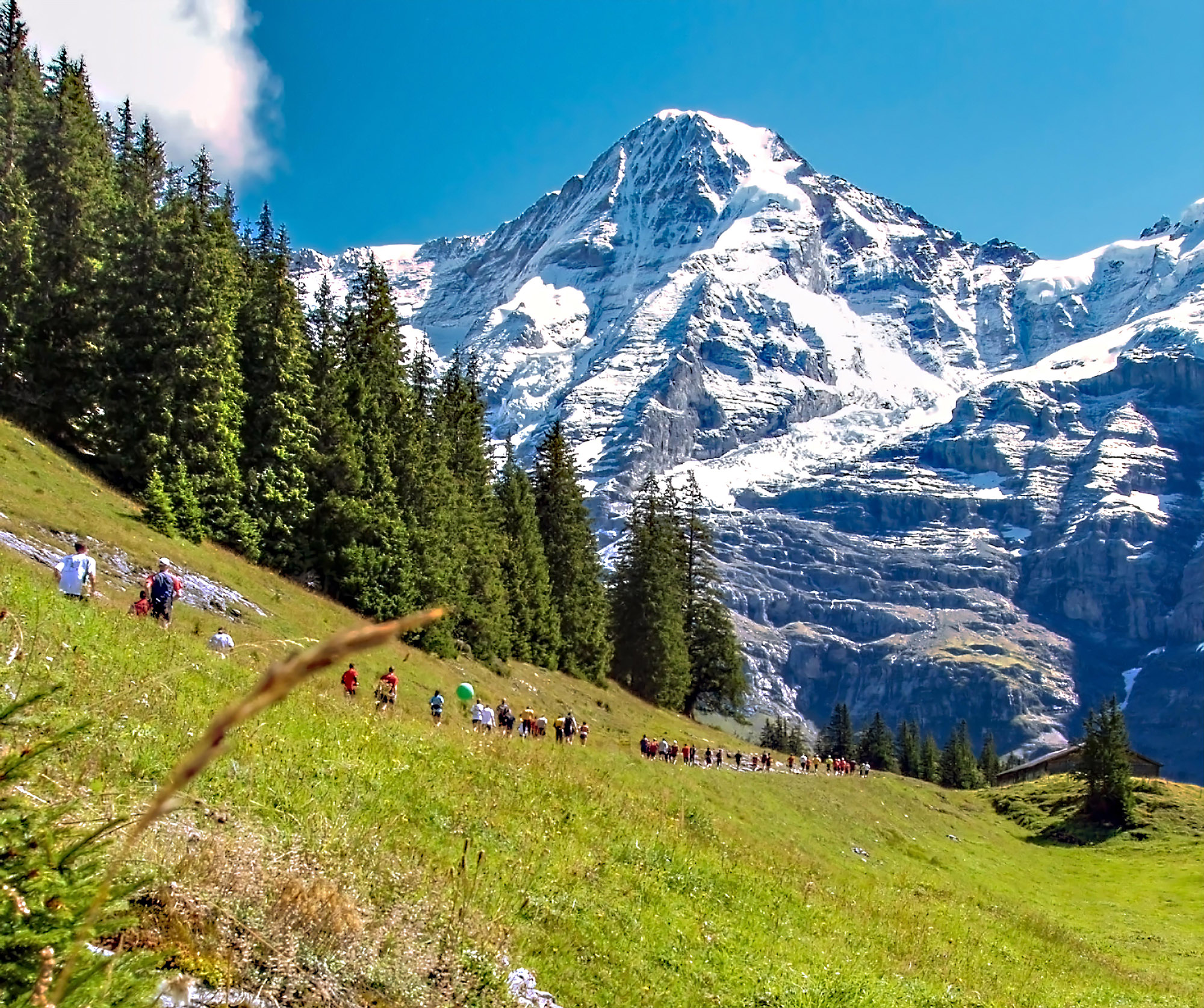
The Jungfrau Marathon - 42km of effort and amazement!
Elated by the moment they shared, the two citizens decided to convince their respective local authorities to intensify the friendship between their hometowns. Two years later, on October 1, 1978, the same day Otsu celebrated the 80th anniversary of its elevation to city status, Mayor Kozaburo Yamada and Gemeindepräsident Kurt Borter signed a sister cities agreement between Otsu and Interlaken in the Japanese city’s town hall.
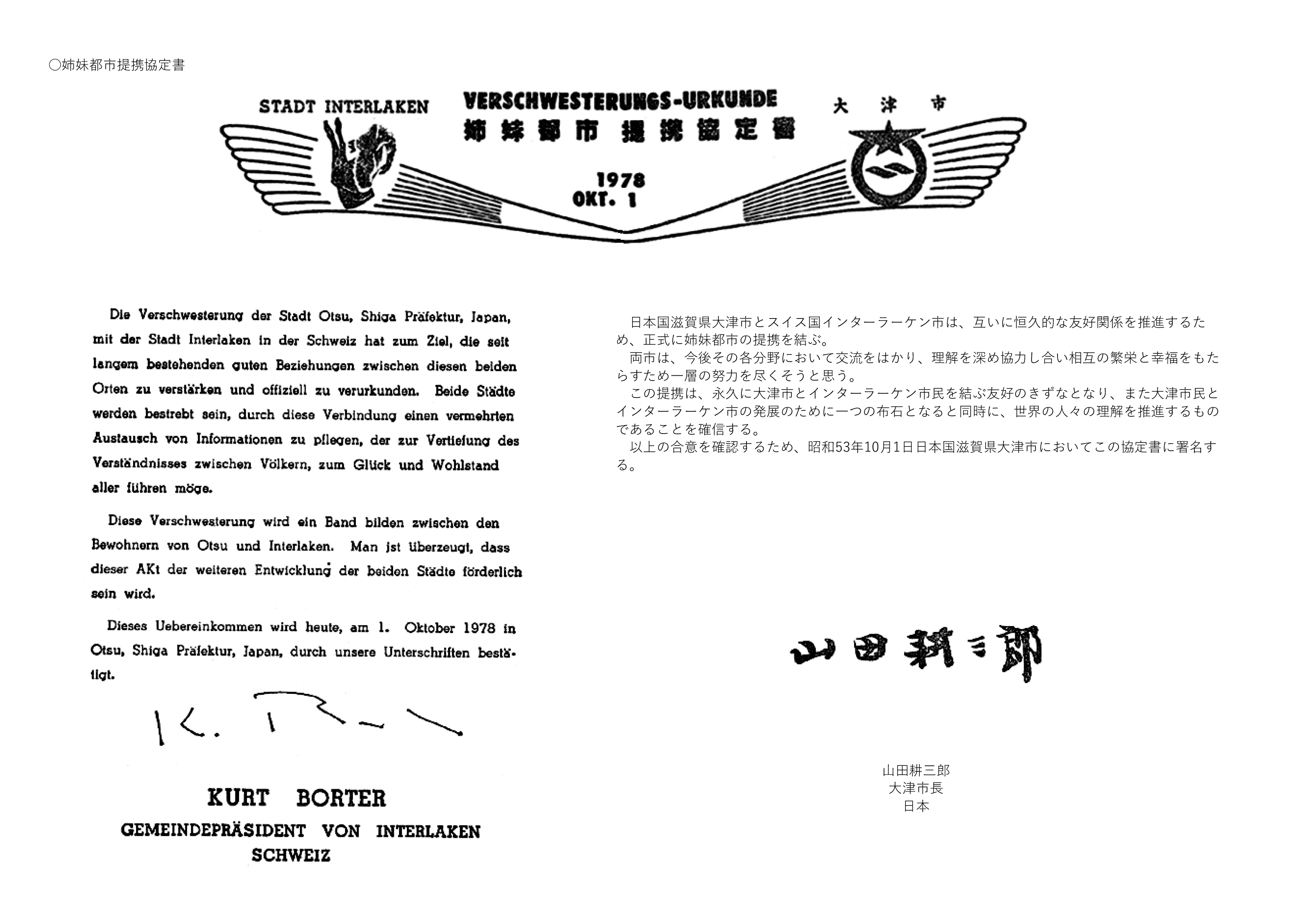
October 1978: the two towns officially become sister cities (©Otsu City)
A shinjii pond at Schlossstrasse
Since then, the relation between the Swiss and the Japanese cities has remained an important pillar of the two cities’ international relations. As late as October 2018, a large Swiss delegation led by Mayor Urs Graf visited Otsu to celebrate the 40th anniversary of the agreement and enjoy Japanese hospitality. The people of Interlaken are indeed deeply attached to their friends in Otsu, to the point that a "Japanese Garden of Friendship", complete with pavilion, pond and koi carps, was laid out in their city in 1995. At its entrance, a sign reads:
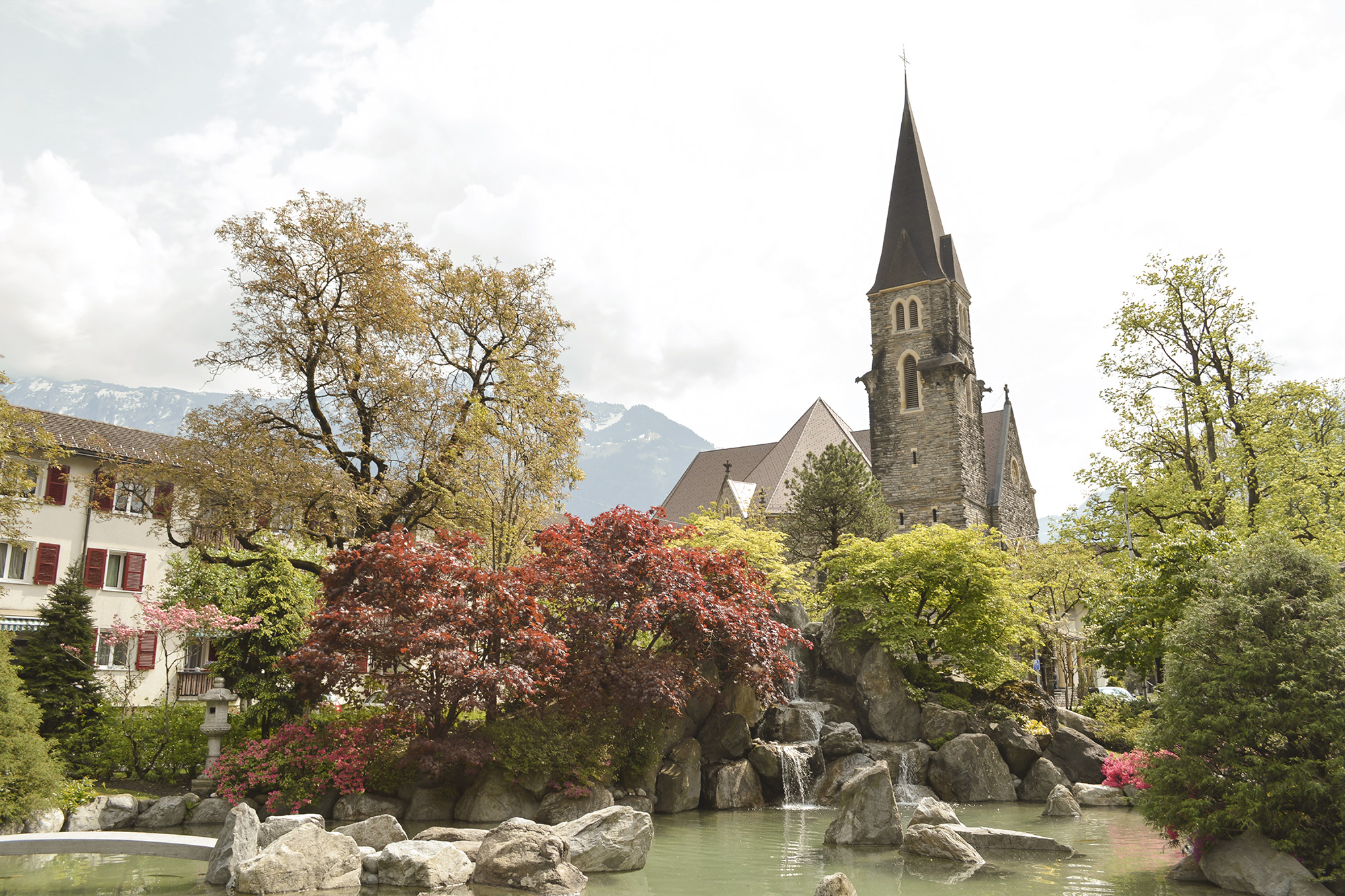
The Japanese-style "Garden of Friendship", Interlaken
"[…] In order to realize this garden, Landscape gardeners were specially sent from Otsu to Interlaken. Thus the building of the garden was made possible through joint effort and combined professional know-how. We wish to thank all those many helping hands. We sincerely hope this garden will provide an oasis of relaxation and inner peace for residents and guests alike. It should stand as a symbol for the exchange of culture and friendship. May everyone who enjoys some moments of peace in this garden realize the will towards the perpetuation of peace in the whole world".

